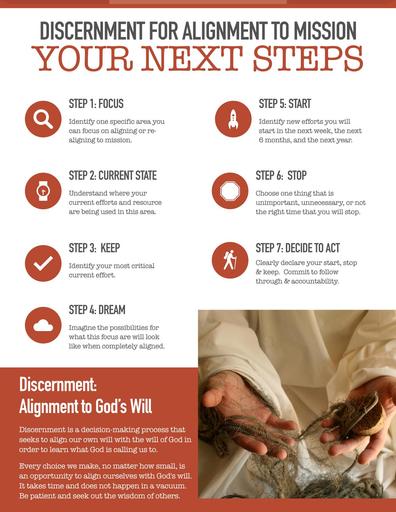To build a culture of encounter, we must start from within ourselves, from our personal call to discipleship. God knows our true selves, desiring that we, too, discover the person God has called us to be. Through prayer, we encounter ourselves before God; we see ourselves as God sees us. And we realize that God delights in every member of our human family because God is truly present in each of us.

Jesus reminds us, “You shall love your neighbor as yourself” (Mk 12:31). To love another, we must come to know our own selves, our own hurts and triumphs, our own joys and challenges. What begins as an interior encounter necessarily goes beyond ourselves, challenging us to live in solidarity with people we may never meet. How can we hope to go to the margins, to accompany those who are most vulnerable and in need, if we haven’t properly wrestled with our own vulnerability, our own need? Only then can we recognize that each person we encounter can share with us some unique insight about our world, about ourselves, and ultimately, about our God.
![]() Click to Tweet: Through prayer, we encounter ourselves before God; we see ourselves as God sees us.
Click to Tweet: Through prayer, we encounter ourselves before God; we see ourselves as God sees us.
We meet Jesus in the desert, a time of introspection and discernment before he begins his ministry. What has he gone there to accomplish? Luke tells us that Jesus “was led by the Spirit into the desert for forty days, to be tempted by the devil” (4:1-2). There he fasts and prays—and the enemy takes that opportunity to tempt Christ with those temptations we each encounter daily: material comfort, honor, and pride.
Jesus responded by trusting in God, by emptying himself of pride and power and ultimately rejecting the invitations of the enemy.
We, too, can better understand where we are broken and turning away from who we are called to be by following Jesus’ example and encountering ourselves through prayer and fasting. We may not go into a desert for forty days, but we can and should take the forty-day invitation of Lent as an opportunity to reorient our lives, examining how we are living in relationship with God and our neighbors.
That might mean coming to terms with troubling or disappointing truths. Can we, like Jesus, radically reject the offering of power, of influence? We all want glory, praise, a pat on the shoulder, but as Jesus turned away from the enemy’s offering, so too must we. And then, where do we turn? We go to the margins with humility and compassion. Only by encountering ourselves can we then encounter our neighbors.
Originally published on To Go Forth, a blog from the United States Conference of Catholic Bishops’ Department of Justice, Peace & Human Development. Copyright © 2017, United States Conference of Catholic Bishops, Washington DC. All rights reserved. Used with permission.
Excerpts from the New American Bible, revised edition, copyright © 2010, 1991, 1986, 1970 Confraternity of Christian Doctrine, Washington, DC and are used by permission of the copyright owner.

